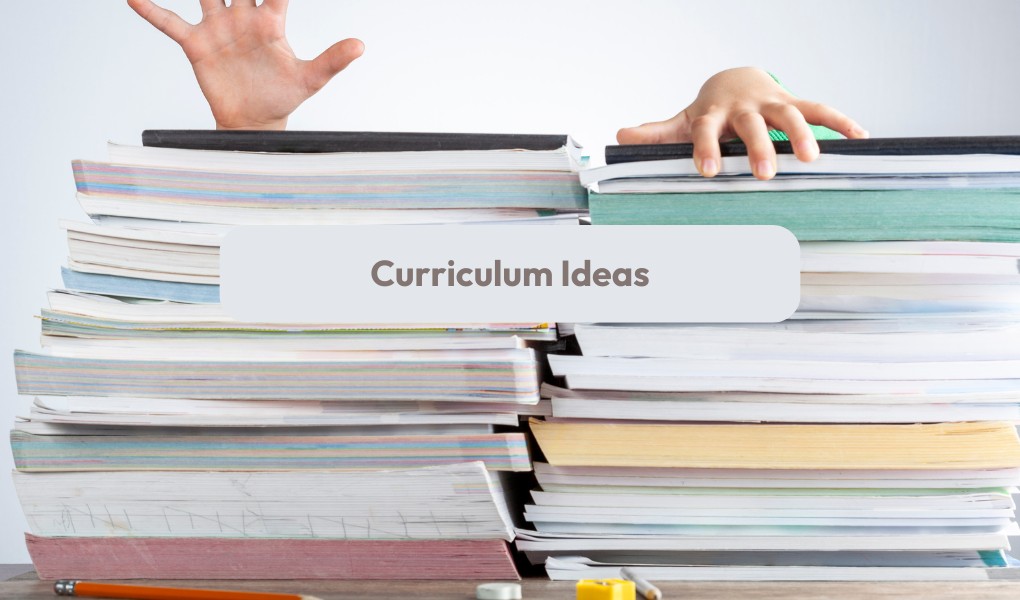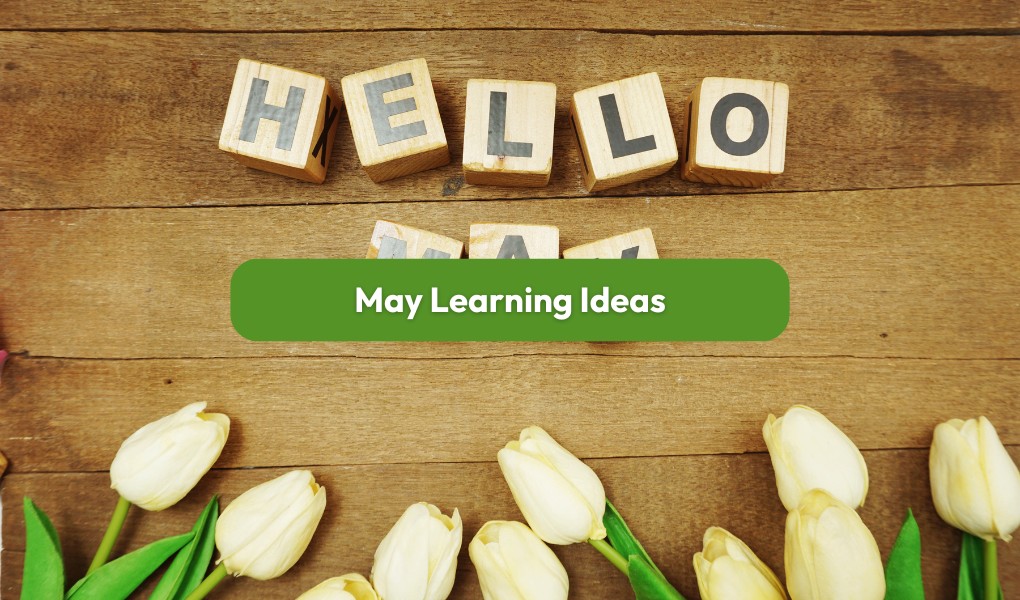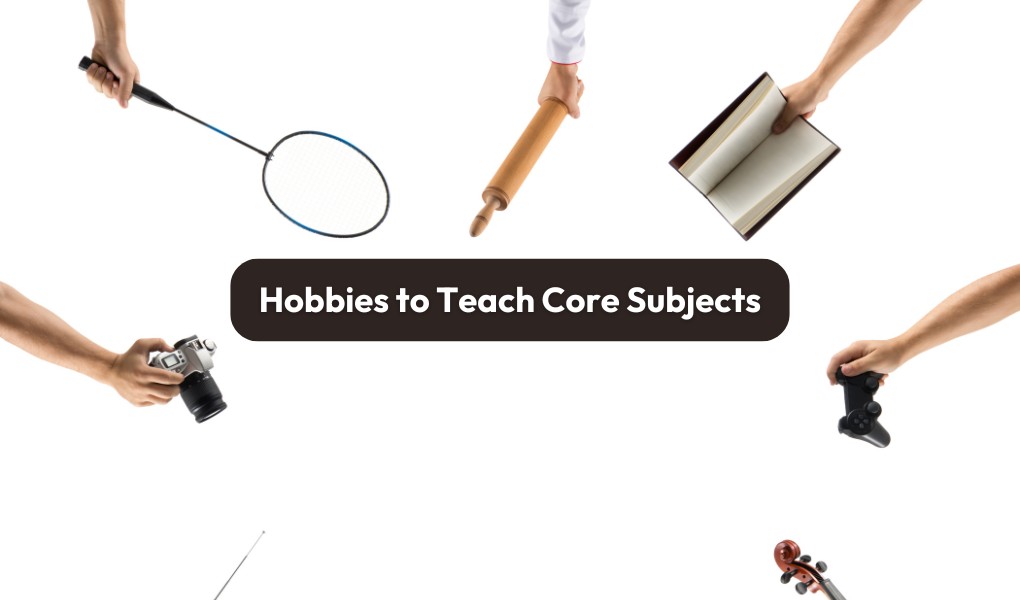If you’re considering creating your own curriculum for your child, you may be wondering what to include.

The beauty of homeschooling in the UK is that you do not have to follow the national curriculum—you can choose from those available online or even create a curriculum of your own!
If you’re considering creating your own curriculum for your child, you may be wondering what to include. With the luxury of being able to create it however you like, it can actually be quite daunting and leave your mind feeling blank.
Don’t worry, we’re going to tell you what you can include in your own curriculum (if you’d like to!). With endless possibilities, the key is to create a balance between essential subjects, life skills, creativity and personal interests! The best part is you can still make it entirely personal to your child!
But before we dive into some homeschool curriculum ideas, let’s look at why homeschoolers decide to create their own curriculum in the first place.
Why do homeschoolers create their own curriculum?
- Dissatisfied with current available curricula
- To customise to their child’s learning style
- To tailor their child’s learning to their interests
- To implement various values, beliefs and learning ideas together in one curriculum
- To have more flexibility
- To be able to adapt to changing needs
- To avoid a one-size-fits-all approach
- To address special needs or giftedness
- To blend multiple approaches to learning

Homeschool Curriculum Ideas
1. Core Academic Subjects
- Mathematics: We all know that basic maths is important and it should always be taught at your child’s level. Hands-on activities can make maths fun and engaging, even for children who do not enjoy it as much. You could even consider incorporating real-world applications like budgeting, cooking, or DIY projects to apply maths skills.
- Language Arts: This includes reading, writing, grammar, and literature. Perhaps start by introducing age-appropriate books and writing exercises. You can encourage creative writing through journaling, short stories, or poetry.
- Science: A strong science curriculum should spark curiosity. Start with basics like biology, chemistry, and physics, but include hands-on experiments, nature studies, and opportunities to explore scientific topics in the real world, such as visiting museums, zoos, or conducting at-home experiments.
- History/Geography/Social studies: History, geography, and social studies are crucial for understanding the world. You can use historical documentaries, timeline activities, and map work to make these subjects more interactive. They are also great subjects for following certain interests as well.
2. Life Skills
Homeschooling is a great opportunity to teach children life skills that they might not learn in traditional schools.
- Finance: Teach your child about budgeting, saving, investing, and understanding how money works. Simple concepts like managing an allowance or starting a small business can evolve into lessons on taxes, loans, and financial responsibility as they grow older.
- Home Economics: From cooking and nutrition to basic household chores, home economics is an essential part of life skills. Teach your child how to plan meals, cook simple dishes, do laundry, and manage household tasks to prepare for independent living.
- Time management and organisation: As they progress in their homeschooling, your child can learn how to organise their own schedules, prioritise tasks, and set personal goals. They can learn skills that are essential in everyday life.
Check out our entire list of life skills to teach your homeschooled child!
3. Personal Interests
One of the great advantages of creating your own homeschool curriculum is that you can include subjects and activities that tap into your child’s unique interests. Simply by offering a wide variety of options, your child can explore and experiment, and perhaps discover hidden passions.
- Art and music: Encourage creativity through visual arts like painting, drawing, or sculpture, as well as through music lessons, learning an instrument, singing, or composing music. You could also explore the history of art and famous composers.
- Coding and technology: In today’s digital world, coding is an incredibly valuable skill. Whether through free online resources or specific coding curriculums, teaching your child programming languages like Python or HTML, or introducing them to robotics, can open doors to future careers.
- Foreign languages: Introducing foreign languages early can help your child to develop fluency and understanding of specific cultures. You could choose widely spoken languages like Spanish or French, or you could focus on a language related to your family’s heritage or your child’s interests.
- Physical education: Physical activity is both crucial and essential for a number of different reasons, including health and development. You could create a physical education plan that includes daily exercise in whatever form your child likes best or thrives at. This could be through organised sports, yoga, hiking, or even nature walks. It’s also worth teaching about health, wellness, and nutrition!
4. Project-Based Learning
- STEM projects: Science, technology, engineering, and maths can all be applied and taught through hands-on projects, such as building simple machines or creating science fair projects.
- Interest-focused projects: Your child’s interests can be turned into entire projects. If they love history, they could create a project on their favourite time period or historical event. From researching to creating models, the possibilities are endless.
- Entrepreneurship: Starting a small business or a project can teach your child valuable lessons in leadership, finance, and responsibility. This can also be a practical extension of subjects like maths, economics, and business studies.
5. Customised Learning Based on Interests
Homeschooling will always be favoured for the ability to tailor lessons and daily activities based on your child’s interests. For example, if your child is interested in space, you could design a unit around astronomy, covering maths (calculating distances), science (planetary exploration), and history (space missions).
Discuss your child’s interests together and prioritise them in your homeschool curriculum. Also work out how your child learns best. Are they a visual learner? Do they like being hands-on? Or are they happy with more academic based learning?
6. Outdoor Learning
Learning doesn’t have to stay confined to textbooks. Take advantage of museums, nature reserves, art galleries, or even local businesses, and get outside! The world is a much bigger and better classroom.
- Science centres: Consider visiting an interactive science centre where your child can learn through hands-on activities, experiments, and workshops.
- Historical sites and museums: Make visits to local historical landmarks or museums a regular part of your curriculum. It will bring history lessons to life and even create a deep appreciation of culture and heritage.
- Volunteering: Involve your child in community service or volunteering as a way to teach empathy, leadership, and social responsibility.
7. Assessment and Record Keeping
A beneficial idea for your homeschool curriculum is to keep track of your child’s progress. This doesn’t mean you need to commit to regular tests, but having some form of assessment or record keeping will help to gauge how your child is doing.
- Portfolios: A portfolio of completed work, projects, essays, and photos of activities is a great way of keeping a record of achievement. It also means you’ll be able to see your child’s progress over time.
- Self-assessment: You could encourage your child to reflect on their own learning by keeping a journal or discussing what they’ve learned in different subjects. This is something that they can always refer back to and use to create future goals.
When creating your homeschool curriculum, you can incorporate any of these curriculum ideas and adjust them to your child’s needs and interests. You don’t have to feel pressured to follow certain expectations or the example of another curriculum—what matters is that your child benefits from what they are learning and enjoys it!

m@liberated
Want more from Liberated to Learn?
Subscribe to stay updated about new posts, resources and giveaways!












